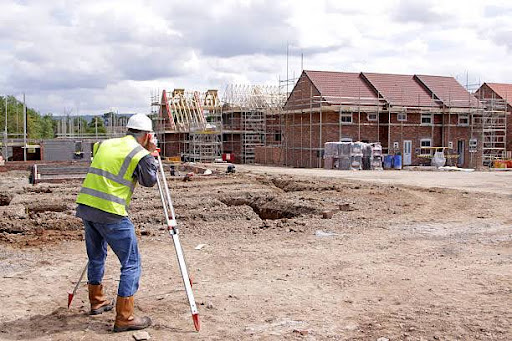Buying or improving a house is one of the biggest decisions people make. But even if a property looks perfect on the outside, it may have hidden problems inside the walls, roof, or foundation. Just like you wouldn’t buy a car without checking under the hood, a home or building shouldn’t be trusted without a deeper look from an expert.
This is where trained specialists come in. They look beyond paint and tiles and focus on what’s holding the entire structure together. Whether it’s an old cottage in the countryside or a modern flat in the city, buildings must be safe and sound, especially in the UK’s varied climate and ageing housing stock.
What Does a Structural Engineer Do?
A structural engineer is like a doctor for buildings. They check if a property can hold its weight and resist things like wind, rain, or even nearby construction. Their role involves examining the framework of the building, such as beams, foundations, floors, and load-bearing walls.
They don’t just guess based on appearance. They use calculations, building codes, and tools to assess risks. If anything looks weak or unsafe, they provide clear solutions on how to fix it. This is especially helpful when you’re:
- Planning major renovations like adding a loft or removing walls
- Buying a property with visible cracks or damp
- Selling a house that had structural work done in the past
These assessments often form part of what’s called a structural engineer’s survey. It’s a specialised report that highlights both obvious and hidden issues related to the structure.
To learn more about this process, visit The Importance of a Structural Engineer Survey.
Why Is This Survey So Valuable in the UK?
The UK has some of the oldest residential properties in Europe. Many buildings were built before modern regulations came into place. Some of the most common structural issues include:
- Subsidence: When the ground under a property sinks, leading to cracks
- Wood rot: Often caused by prolonged dampness or leaks
- Unsupported changes: DIY renovations done without professional advice
- Settlement cracks: Harmless in some cases, but severe ones may need repairs
A survey carried out by a structural engineer identifies which of these are genuine threats to the building’s safety and which are cosmetic. That distinction can affect the sale price of the home or the decision to buy at all.
How This Differs from Standard Building Inspections
When people hear the term “property survey,” they often think of the general inspections done by chartered surveyors. These are commonly done during home purchases. However, these inspections are broader and may not go into deep structural analysis unless specifically requested.
For example, Building Surveys offer a wide overview of the property’s condition, like plumbing, insulation, or roof coverings. While they’re useful, they might recommend getting a specialist’s opinion if there’s a concern about the building’s core strength.
For detailed property inspections carried out by trusted UK professionals, explore Prince Surveyors Building Survey services.
Signs That Might Require a Structural Engineer
Here are a few signs that you shouldn’t ignore. If you or your surveyor spots any of these, it’s wise to bring in a structural engineer:
- Large or widening cracks in walls or ceilings
- Sloping floors or leaning walls
- Bouncing or sagging floorboards
- Bulging brickwork or separation between walls and windows
- Unstable chimney stacks
These signs can indicate anything from minor movement to serious foundational problems.
Costs vs. Risks: Is It Worth It?
A common concern is the cost of hiring a structural engineer. In the UK, a basic structural engineer survey can range from £300 to £1,000, depending on the complexity and size of the property.
Now compare that to potential risks:
- A failed renovation that costs thousands more to fix
- A home sale was dropped due to unknown defects
- Long-term safety concerns for families or tenants
In the end, that one-time cost could save you from long-term financial loss or even legal issues. It also provides peace of mind, especially if you’re investing in your “forever home.”
What to Expect from the Survey Report
Once the inspection is complete, the structural engineer provides a written report. This document includes:
- A summary of the current structural condition
- Details of any damage or risks
- Recommendations for repairs or reinforcements
- Calculations and drawings, if you plan to submit the report for planning approval
It’s worth noting that these reports are often required by mortgage lenders and local authorities when applying for planning permissions or doing major work.
Do You Need One for Renovations Too?
Absolutely. If you’re adding an extension, knocking down internal walls, converting a garage, or modifying roof structures, you’ll likely need structural input. Even seemingly simple tasks like removing a chimney breast can impact the stability of the home if done incorrectly.
Engineers will also calculate load-bearing requirements and ensure that any new elements comply with UK Building Regulations.
Hiring the Right Professional in the UK
When searching for a structural engineer, always check that they are qualified and insured. In the UK, most are registered with IStructE (Institution of Structural Engineers) or ICE (Institution of Civil Engineers).
Also, make sure to:
- Ask for examples of previous work
- Confirm if they’re familiar with properties in your area
- Request a timeline and fixed quote before starting
Having a trustworthy expert on your side helps you avoid rogue builders or costly missteps.
Final Thoughts
Whether you’re buying, selling, or updating a home in the UK, taking time to understand its true condition is key. While general surveys help with an overview, it’s the deep inspection from a structural engineer that reveals hidden dangers and provides real answers.
Paying attention to your property’s stability now could save you thousands in the future and protect the people who live there every day.
FAQs
1. Can a regular surveyor do what a structural engineer does?
No. A surveyor offers a general property check. If structural issues are suspected, they’ll often recommend bringing in a structural engineer.
2. Is a structural survey the same as a homebuyer report?
Not quite. A homebuyer report checks general condition and value, while a structural engineer survey focuses purely on the integrity of the building.
3. When is the best time to get one?
Before buying a property or starting renovations that may affect the structure.
4. Will it delay my house purchase?
Not usually. Most engineers can provide a report within a few days of inspection.

















